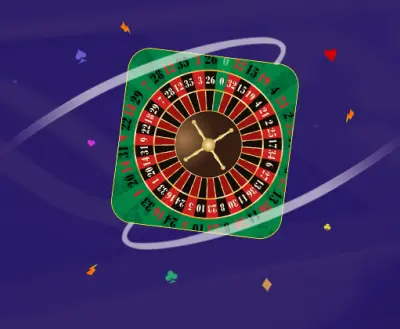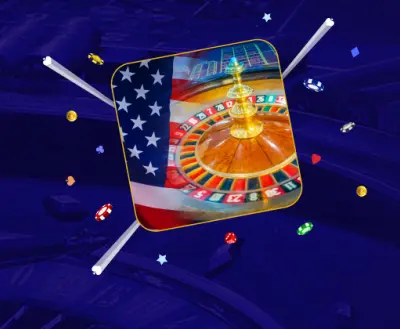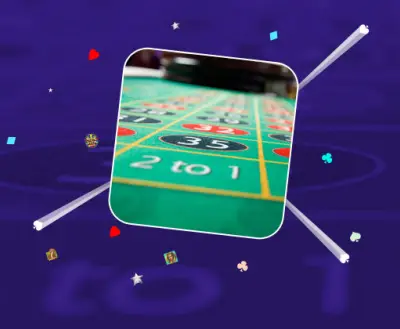How to play American Roulette: Strategies and Tips
Key Takeaways:
- The additional '00' in the American Roulette wheel increases the house edge to 5.26%.
- Inside bets offer higher payout but lower winning chances; outside bets provide better odds with lower payouts.
- Past outcomes don't influence future results in Roulette, debunking the Gambler's Fallacy.
- Over time, results tend towards the expected value, but the house edge prevents breaking even.
- European Roulette, with a single '0', offers a lower house edge of 2.7% compared to American Roulette.
- Martingale, D'Alembert, and Fibonacci are common betting strategies to manage bankroll and add excitement to the game.
- Tips for playing include practising with free games, understanding the odds, focusing on outside bets as a beginner, remembering the '00' effect, and trying different strategies.
Welcome to our guide on American Roulette strategies and tips! If you've been eager to try out this exciting game but don't know where to begin, you're in the right place.
American Roulette is a game of simplicity and chance, rather than complex strategies and years of practice. It's widely popular in American casinos and online platforms like PartyCasino. What sets it apart from European Roulette? The major difference is an additional '00' on the wheel, subtly altering the odds and house edge.
Even though it's simple to play, understanding the rules, knowing the table layout, and being aware of the house edge can heighten your gaming experience. We'll delve into all of this, giving you the tools needed to play confidently. Our guide will walk you through American Roulette rules, betting options, and top strategies, sprinkled with handy tips for playing American Roulette.
Table of Contents:
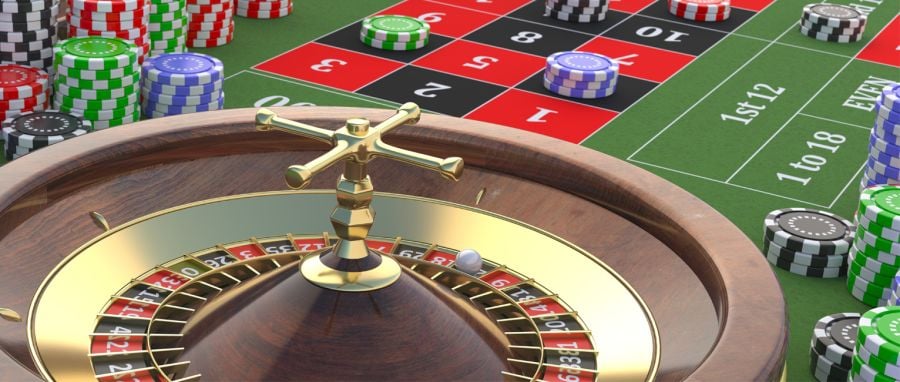
Understanding American Roulette
Before you start placing your bets, there are a few key aspects of American Roulette you need to understand. The devil, as they say, is in the details.
The Role of Zero and Double Zero
In American Roulette, we have two green pockets: the single zero ('0') and the double zero ('00'). But why should you care about these zeros?
1. The Zeros on the American Roulette Wheel
The '0' and the '00' are what make American Roulette, well, American. These two green pockets represent the house edge - and they're why the casino always has a slight advantage.
2. Impact of the Zeros on House Edge
You might be thinking, "How much of a difference can two little zeros make?" Quite a lot, actually! In European Roulette, with only one zero, the house edge stands at 2.7%. With the addition of the '00' in American Roulette, the house edge almost doubles, to 5.26%.
This might not seem like a big deal when you're just having fun. But if you're serious about your game, the house edge is something you should always keep in mind.
For more information on house edge, read our in-depth article here: House Edge Explained.
Layout of the American Roulette Table
The American Roulette table layout might look complicated at first glance. But don't worry - it's actually quite straightforward once you understand it.
1. Layout Description
An American Roulette table features a betting area and a roulette wheel. The betting area has numbers from 1 to 36, a zero, and a double zero, all neatly arranged into three columns. The same numbers and zeros are featured on the wheel.
2. Comparison with European Table Layout
Comparing the American Roulette table with the European table, the main difference, again, lies in the zeros. The American table has the additional '00' in the betting area and on the wheel.
For more information on these 2 roulette variants, check out our comprehensive article here: American Roulette vs European Roulette.
Understanding the American Roulette Wheel (Cylinder)
When it comes to American Roulette, understanding the wheel is just as important as understanding the table.
1. Arrangement of Numbers
The numbers on the American Roulette wheel are arranged in a specific order, and they alternate between red and black. Starting with the '0' at the top, if you move clockwise, the sequence is as follows: 0, 2, 14, 35, 23, 4, 16, 33, 21, 6, 18, 31, 19, 8, 12, 29, 25, 10, 27, 00, 1, 13, 36, 24, 3, 15, 34, 22, 5, 17, 32, 20, 7, 11, 30, 26, 9, 28.
2. Red and Black Number Sequencing
The numbers 1-36 on the wheel are split evenly: 18 are black, and 18 are red. The colours alternate, which means you won't find two reds or two blacks next to each other.
3. Placement of '0' and '00'
In American Roulette, the '0' and '00' are opposite each other on the wheel, with the '0' positioned between two red numbers (2 and 28), and the '00' between two black numbers (1 and 27).
Getting a good grasp on these details is the first step to mastering American Roulette. But remember, the game isn't just about understanding, it's also about having fun!
So, ready to dive deeper and start crafting your American Roulette strategy?
Then let's roll right into the next section, where we'll discuss all about betting in American Roulette. From inside bets to outside bets, we'll break it all down for you. After all, placing smart bets is key to knowing how to win at American Roulette. So let's get spinning!
Betting in American Roulette
Buckle up because we're about to dive deep into the crux of the game - betting. If you're wondering how to play American Roulette strategically, understanding bets is your first step. But before we venture into the specifics, let's ensure we're on the same page with some betting terminology.
Understanding Betting Terminology
1. Inside Bets
These are bets placed on specific numbers or a small group of numbers on the roulette wheel. Intricate and daring, inside bets can yield significant payouts, but remember, with high reward comes high risk.
2. Outside Bets
These are bets placed on broader categories, like whether the winning number will be red or black, odd or even, or fall within a certain range of numbers. Less risky than inside bets, these offer lower payouts but a higher chance of winning.
Types of Inside Bets
1. Straight Up
A straight up bet is as simple as it gets. You're betting on a single number. If the ball lands on your chosen number, you win. As straightforward as it is, it also carries the highest risk, but fetches you the highest payout.
2. Six Line Bet
A six-line bet involves betting on two adjacent lines, covering six numbers in total. It offers lower odds than a straight-up bet, but increases your chances of winning.
3. Corner Bet
A corner bet, as the name suggests, involves betting on four numbers that form a square on the table. You place your chip at the intersection of these four numbers. Win chances? Better than a straight up or six-line bet.
Types of Outside Bets
1. Red or Black
One of the most common outside bets is betting on the colour of the winning number. You can bet on either red or black. As there are 18 red and 18 black numbers on the American roulette wheel, your odds are almost 50-50, barring the green zero and double zero.
2. Column Bet
In a column bet, you're betting that the winning number will be in a particular column of 12 numbers on the roulette table. A winning bet pays 2:1.
3. Dozen Bet
Similar to a column bet, a dozen bet also covers 12 numbers. However, here, the numbers are grouped in dozens: 1-12, 13-24, and 25-36. The payout for a winning dozen bet is also 2:1.
4. Double Dozen Bet
Fancy a bit more risk? A double dozen bet allows you to bet on 24 numbers, covering two dozen groups. It offers a lower payout than single dozen bets, but doubles your chances of winning.
Understanding Betting Probabilities and Outcomes
Once you've got your head around the types of bets, it's time to weigh in on the odds. Don't worry, we've got you covered!
1. Probabilities for Inside Bets
Though the inside bets have higher payouts, they carry less probability of winning. For example, the chance of winning a straight-up bet is 2.63% and a six-line bet offers a slightly better 15.79%.
2. Probabilities for Outside Bets
The odds for outside bets are generally better. Betting on red or black gives you a 47.37% chance of winning, and column or dozen bets provide a 31.58% chance. Remember, it's all about balancing risk and reward.
By now, you're equipped with the knowledge of how to bet in American Roulette. You understand the ins and outs of inside and outside bets, and the probabilities associated with each. Keep in mind that each spin of the American roulette wheel is independent of the last. This means that the odds remain the same regardless of the outcome of the previous spin.
But betting isn't just about knowing which type of bet to place. It's about developing a strategy that maximises your winnings and minimises your losses. In our next section, we'll delve into some popular American Roulette strategies and tips. We'll talk about how you can optimise your bets, and how to best handle your bankroll to ensure a thrilling gaming experience.
Always remember, at the end of the day, American Roulette is a game of chance. It's the unpredictability that makes it so exciting. But with knowledge and a sound strategy, you can take your game to the next level.
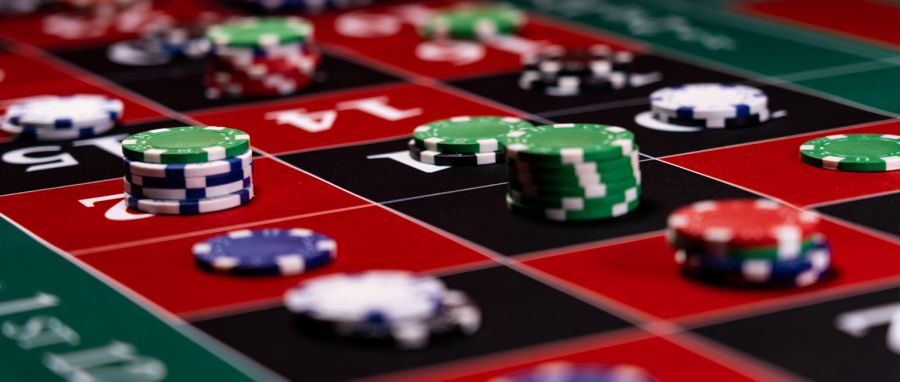
Common Misconceptions and Laws in American Roulette
In the fascinating world of American Roulette, misconceptions can often steer players down the wrong path. Understanding these misconceptions and the mathematical laws that govern the game can give you an edge. So, let's get right into it!
1. The Gambler's Fallacy and its Influence
You've probably heard of the Gambler's Fallacy, right? It's a common belief in the world of gambling, especially in games like Roulette. This misconception is that if an event happens more frequently than normal during a certain period, it will happen less frequently in the future, or vice versa.
For example, imagine the roulette ball has landed on red five times in a row. Some players may believe that black is due to hit next. That's the Gambler's Fallacy in action! But here's the truth: the outcomes in American Roulette are independent events. The wheel has no memory, and the odds of hitting red or black are the same with every spin, regardless of what happened before.
Don't let the Gambler's Fallacy influence your betting strategy. Remember, each spin of the wheel is a new game, a new chance to win!
2. The Law of Large Numbers
The Law of Large Numbers is a principle of probability that describes the result of performing the same experiment a large number of times. The average of the results should be close to the expected value, and will tend to become closer as more trials are performed.
Let's break it down. Suppose you're flipping a fair coin. The probability of getting a head is 50%. If you flip the coin only a few times, you might not get an equal number of heads and tails. But if you flip the coin thousands of times, the numbers of heads and tails will start to equalise, getting closer to the expected 50% - this is the law of large numbers in action.
But be cautious! In a game like American Roulette, the law of large numbers doesn't mean that if you play long enough, you will necessarily break even. Why? Because of the house edge that comes from the 0 and 00 on the American roulette wheel. Over time, these slots tip the scale in favour of the house.
Understanding these misconceptions and laws can guide your American Roulette strategy. They help remind us of the randomness of the game and the importance of playing smartly, rather than relying on past events or long term averages.
The House Edge in American Roulette
As an ardent casino player, you've probably come across the term house edge. In simple terms, this is the built-in advantage that the casino has over you in any given game. The house edge can often be the deciding factor when choosing which game to play, as it directly impacts your potential for profit.
House Edge Explanation and Calculation
So, what exactly is the house edge in American Roulette? In this game, the house edge is determined by the zeros on the wheel – the '0' and the '00'. These zeros tilt the game in favour of the house and create a house edge of 5.26%. Let's take a deeper dive into this.
When you place a bet on a single number (a straight-up bet), there are 38 potential outcomes – the numbers 1 through 36, the 0, and the '00'. But if you win, the payout is only 35 to 1. Hence, if you bet 1 on a single number and it hits, you'll receive 36 – your original 1 stake and 35 in winnings.
But, let's not forget, there are 38 numbers on the wheel, not 36. So, if you were to play 38 rounds, betting 1 each round on a single number, you would spend 38. Given that the payout for a win is 36, you're losing 2 for every 38 rounds you play. That's a loss of roughly 5.26 cents per round, regardless of the outcome. And this, folks, is your house edge – 5.26%.
Comparison with European Roulette's House Edge
Now, let's compare this with the house edge in European Roulette. The European wheel has only one zero, which cuts the house edge to around 2.7%. How does that work?
Well, as with the American version, if you win a straight-up bet in European Roulette, the payout is still 35 to 1. However, as there are only 37 potential outcomes (1 through 36 and the 0), the house edge is smaller. Essentially, the absence of the '00' lowers the house edge and increases your chances of winning.
Overall, American Roulette does have a higher house edge compared to its European cousin. However, don't let this deter you. With the right strategies and a good understanding of the game, you can still have a blast and potentially make some profit!
Strategies in Playing American Roulette
Now that we've got the basics covered, let's dive into some strategies that can elevate your American Roulette game. It's crucial to remember, though, that roulette is a game of chance, and no strategy guarantees a win. However, a good strategy can improve your odds, manage your bankroll, and make the game more enjoyable.
1. Martingale Strategy
Let's kick off with one of the most popular roulette strategies: the Martingale Strategy. The idea behind this strategy is pretty straightforward.
Here's how it works: you start by placing a small bet on red or black, odd or even, or 1-18 or 19-36. If you win, keep the winnings and place the same small bet again. If you lose, double your bet. If your bet wins, you've recouped all your losses and even made a small profit. Then, you start over with a small bet.
The Martingale is known as a negative progression strategy, meaning you increase your bets after a loss. Remember, while the Martingale strategy can help, it requires a good bankroll and betting limits that will allow you to double up several times.
2. D'Alembert Strategy
Next, let's discuss the D'Alembert Strategy, another popular method named after the French mathematician Jean le Rond D'Alembert. Like the Martingale, this strategy is used for outside bets.
The D'Alembert strategy is a bit safer than the Martingale. You start by choosing a base unit for your bet, like 1. If you lose, you add one unit to your next bet. If you win, you subtract one unit from your next bet. The idea is that if you have as many wins as losses, you will be in profit by the number of bets you've placed.
This strategy is less risky than the Martingale, but it's still a negative progression strategy, meaning you increase your bet after a loss.
3. Fibonacci Sequence Strategy
Lastly, let's examine the Fibonacci Sequence Strategy. Named after the famous sequence by Leonardo of Pisa, or Fibonacci, this strategy involves betting by adding the last two bets together.
Here's how it works: Start by betting 1. If you lose, you bet 1 again. Lose again, you bet 2. Then 3. Then 5. And so on, following the Fibonacci sequence. If you win, you move two numbers back in the sequence and bet that amount.
Like the previous two, the Fibonacci strategy is also a negative progression strategy, increasing your bet after a loss. It's a bit more complex and requires a bit of maths, but some players swear by it.
These are three of the most popular American roulette strategies. They might not guarantee a win - after all, American Roulette is a game of chance - but they might help manage your bankroll and add a bit of excitement to your game. Remember, the best strategy of all is to enjoy the game!
Tips for playing American Roulette
- Practice Makes Perfect: Before you jump in with real money, take advantage of free American Roulette games to practise your strategy and get a feel for the game.
- Understand the Odds: Knowledge is power, and in American Roulette, it's no different. Get to know the odds of every possible bet so you can make informed decisions.
- Play the Outside: While they offer smaller payouts, outside bets (Red/Black, Odd/Even, High/Low) have nearly 50/50 odds, making them a good choice for beginners.
- The '00' Effect: Always remember, the '00' in American Roulette increases the house edge. The payout for any single number bet is 35 to 1, but the odds of it happening are 1 in 38 because of the '00'.
- Try Different Strategies: Use the strategies we discussed earlier. The Martingale, D'Alembert, and Fibonacci strategies can all add a fun twist to the game and help manage your bankroll.
Conclusion
Without a doubt, the most important tip for any casino game, including American Roulette, is effective bankroll management. Setting a budget and sticking to it is critical. Decide beforehand how much money you're willing to risk, and never, ever go beyond that.
Also, it's wise to set win and loss limits. A win limit ensures that you quit while you're ahead and don't lose your winnings by getting too greedy. A loss limit, on the other hand, prevents you from chasing losses and digging yourself into a deeper hole.
Remember, roulette is a game of chance, and while strategies can add to the fun, they can't guarantee a win. So the most important rule of all is to play responsibly and have fun! Care to take American Roulette for a spin? Try it out at our online casino.
Related Articles:
- How To Play European Roulette: The Ultimate Guide
- How To Play French Roulette: Strategies And Tips
- Double Ball Roulette Guide
- Auto Roulette Guide
- Slingshot Roulette Guide
- Lightning Roulette Guide
- XXXtreme Lightning Roulette Guide
- Speed Roulette Guide
- Power Up Roulette Guide
- Gold Bar Roulette Guide
- Space Invaders Roulette Guide
- Quantum Roulette Guide




